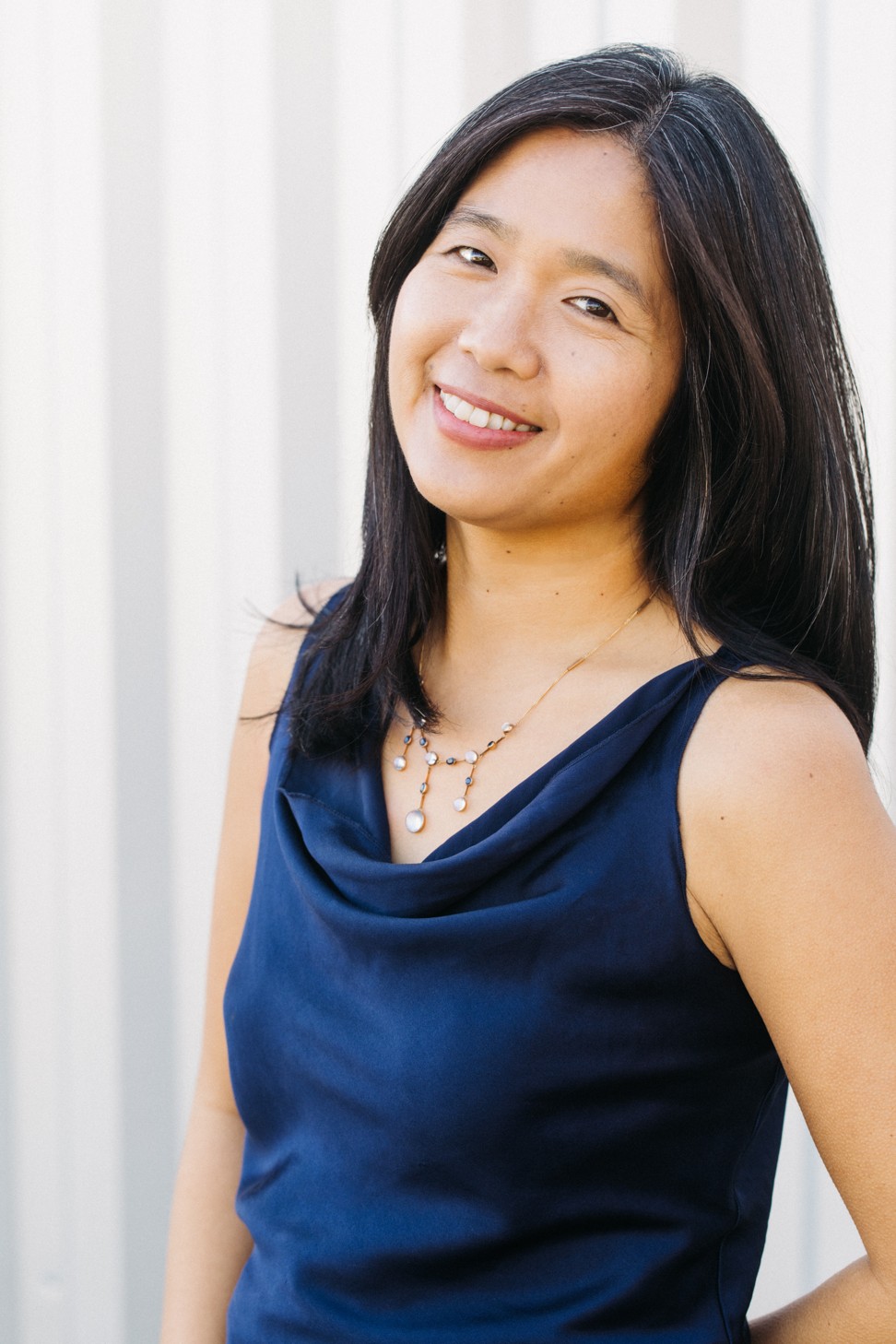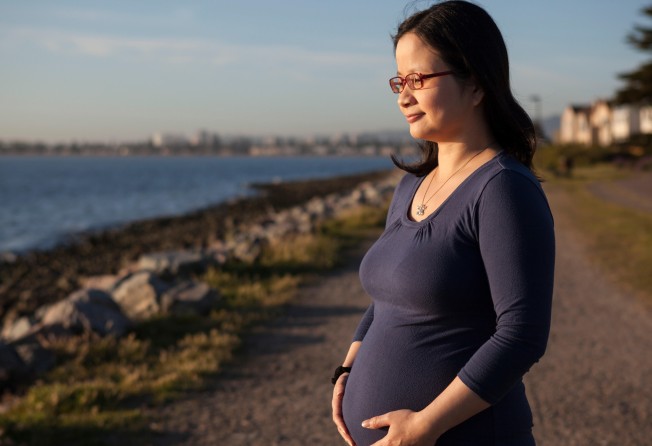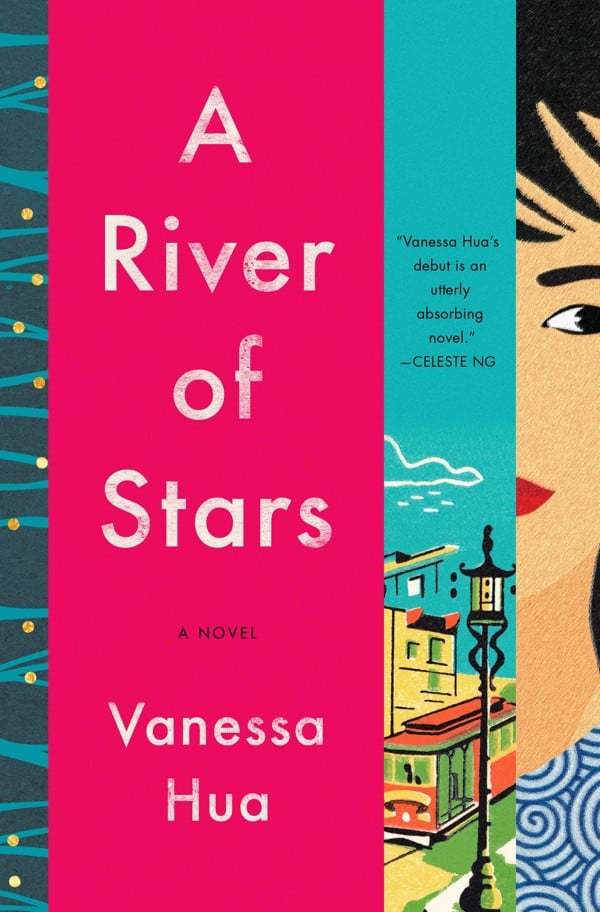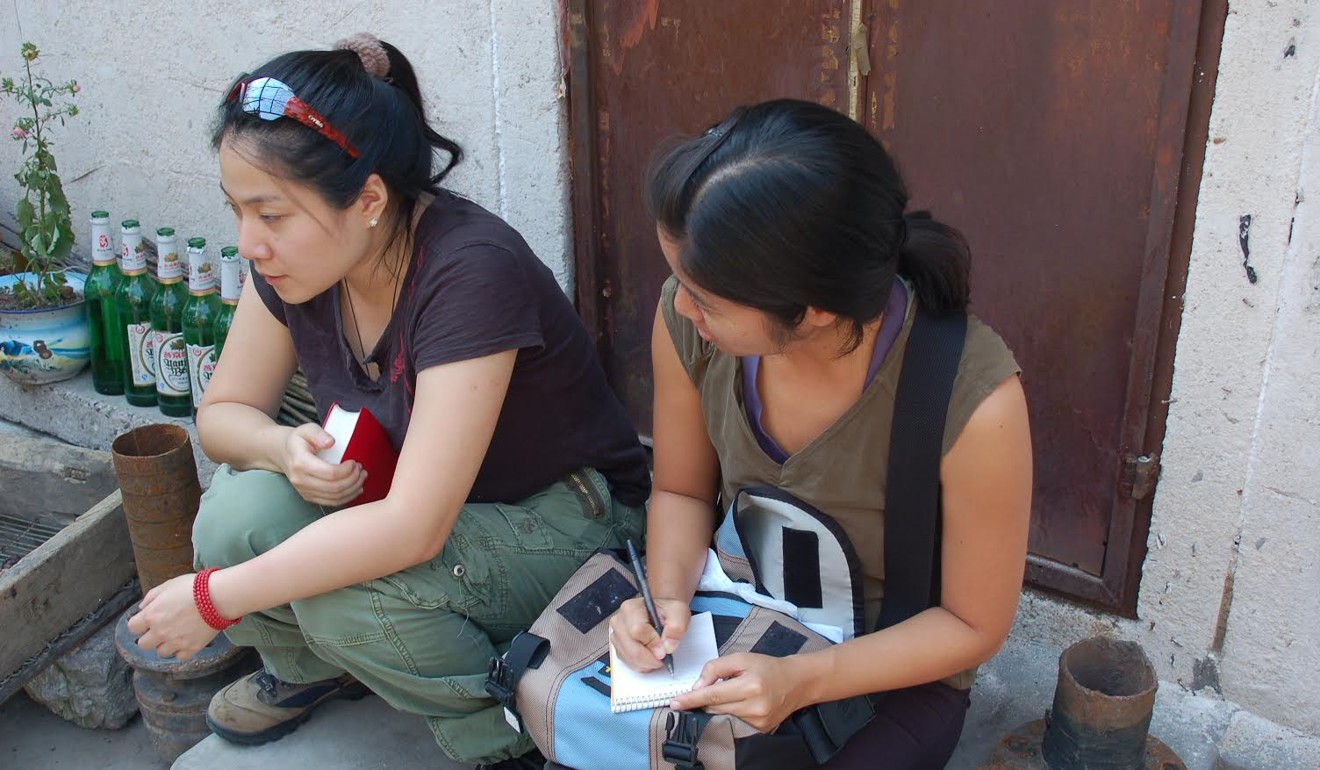
Chinese birth tourism: pregnant women in California’s ‘maternity hotels’ given voice in empowering novel
Vanessa Hua’s A River of Stars explores the immigrant experience in the US from a new perspective, taking the reader inside maternity boarding houses where myriad characters, each with their own reason for being there, exist

In 2011, journalist and writer Vanessa Hua was living in Claremont, California, pregnant with twins, when she heard about a local phenomenon. Throughout southern California, dozens of pregnant Chinese women, bellies heavy with imminent babies, were living together in shared homes.
The women were both boarders and patients in what were called “maternity hotels”– American houses where women from Taiwan and the mainland resided, typically from their sixth month of pregnancy until giving birth. The reason? So that they could deliver their children on United States soil, giving their precious progeny American citizenship.
The empire-waisted silhouettes and heaving, swollen breasts of these women hardly went unnoticed. “Neighbours were asking why so many expectant Chinese women were coming and going into suburban homes,” Hua recalls from news accounts. “It sounded like a brothel in reverse.”
Living a parallel existence, with her own two sons on their way, Hua began to ponder what these women’s lives were like. “When I was pregnant, I found that people treated me very generously, offering me a place at the front of the line, or giving up their seat,” she says. “They asked me when I was due, if I was having a boy or a girl, and shared stories about their families.” That started her thinking about what being pregnant and alone among a dozen or so similarly pregnant, alone and wildly hormonal women might be like. “Who would be the queen bee?” Hua asked herself. “It seems like a situation ripe for drama – and comedy.”
Hua stumbled on a newspaper story about one of the maternity hotel residents who evidently knocked on the door of a neighbour, asking for something to eat. “It made me realise that these mothers-to-be may have felt trapped,” she says. That’s when Hua put on her fiction writer’s hat and started imagining a pregnant character who wanted to escape, who didn’t get along with the other clients – a feisty underdog who did not allow impending motherhood to dull her survivor’s instincts. Maybe, she reasoned, this character was even ambivalent about becoming a mother.

Hua sat down and wrote about this maternity hotel captive. She named the character Scarlett, and the first scene that came out was of this scrappy, lower-class woman engaged in an all-out cat fight with a snooty maternity hotel client, nicknamed Lady Yu. “From that moment, Scarlett’s character grew,” says Hua, who, in addition to writing news articles, has penned a collection of short stories, Deceit and Other Possibilities (2016). (O, The Oprah Magazine, called the collection “searing”.)
From that one scene was born Hua’s debut novel, A River of Stars (2018), which follows the exploits of Scarlett Chen, an ambitious village girl-turned-factory worker made pregnant by her employer, Boss Yeung, in Shenzhen.
At Boss Yeung’s insistence, Scarlett flies across the Pacific on her own and checks into an Orange County, California maternity hotel, dubiously named Perfume Bay. There, she realises that Yeung, her married lover, still on the Chinese mainland, has possibly betrayed her and plans to take their child for his alone.
This discovery sends Scarlett fleeing the maternity hotel in a stolen van (with a heavily pregnant teenage stowaway hidden in the back). The book follows their wild odyssey through the new Gold Mountain, a reference to the Chinese diaspora living in cities such as Irvine and San Francisco.
[A River of Stars] splits the Chinese immigrant story into a kaleidoscopic spectrum, putting human faces to the many groups – rich and poor, privileged and marginalised, documented and not – who come to America
A River of Stars is a richly textured page-turner that takes readers not only to the maternity hotels but also to the dank back alleys and boarding houses of San Francisco’s Chinatown, as well as to the villages and factories that Scarlett left behind.
Bestselling Chinese-American novelist Celeste Ng (Little Fires Everywhere, 2017) describes Hua’s book as “Utterly absorbing. It splits the Chinese immigrant story into a kaleidoscopic spectrum, putting human faces to the many groups – rich and poor, privileged and marginalised, documented and not – who come to America.”
Author Junot Diaz (The Brief Wondrous Life of Oscar Wao, 2007) gushed over the book, too, describing it as “fantastic and necessary” and “urgent and smart in all the right ways”.
The novel offers readers a window into the phenomenon of Chinese maternity tourism – not only how these families are grasping for the prize of American citizenship for their offspring, but also why.
In the novel, just as in life, the maternity hotel owners use clever marketing to lure clients such as Scarlett and Boss Yeung across the Pacific. The website for Perfume Bay, located more than 10,000km away, promises prospective patients a mini Eden. In this case, photos of a manor-like suburban Californian home ringed by willow trees, with a pond in the backyard and a young mother serenely cradling her plump son, beckon mainland parents to book a three- or four-month stay. The business touts American citizenship for babies and queenly treatment for mothers.
Sure, costs are hefty, but fees include care during the one-month post-birth zuo yuezi period, during which recovering new mothers mostly recline in bed and drink medicinal soups to recover while their infants receive cradling and sponge baths from a doting Chinese nurse.
Once in California, however, Scarlett finds a rundown communal home crowded with cranky, highly strung women, a dismal yard choked with weeds, a scheming house mother (Perfume Bay’s owner, Mama Fang) and opportunistic medical technicians. The only thing close to the advertised “perfume” is the foul odour from the industrial-sized trash cans that overflow with used diapers.
Hua’s fictional depiction is not all that far from the truth. Both The Los Angeles Times and NBC News reported on these communes of pregnant women and the poorly kept group homes that shelter them.

The BusinessWeek story reported that many of these maternity homes took elaborate steps to coach pregnant clients hoping to enter the US: the first guideline was to book a flight from China to Las Vegas, Nevada, even if the client’s maternity hotel was in California. The reason was simple: the desert city is a well known magnet for Chinese tourists looking for gambling adventures, making it easier for any Chinese traveller, even a pregnant one, to blend into the crowds entering the US.
According to Berfield’s story, maternity hotel administrators also coached Chinese clients to apply for visas with a traveller friend who often made such gambling trips, thereby avoiding suspicion. If the pregnant Chinese client could not find such a partner, a maternity hotel agent could provide someone for US$9,600. “If the story is convincing and she is good-looking, then the success rate will be pretty high when she goes for the visa interview,” the coach reportedly told a would-be client.
There is nothing illegal about travelling to the US while pregnant. However, lying to immigration officials about the reasons for your visit is considered a form of fraud. “Visa fraud is a huge vulnerability for the country,” Homeland Security agent Claude Arnold told BusinessWeek. “These women allegedly lied to come have a baby. Other people could come to do something bad. We have to maintain the integrity of the system.”
No one knows how many maternity hotels there are in the US, as most operate covertly. However, according to the BusinessWeek story, the Center for Immigration Studies estimates that in 2012 there could have been as many as 36,000 birth tourists from around the world. At least one maternity hotel has advertised its services for US$30,000 (gold package) to US$60,000 (premium package, which includes the “mother’s visa, the baby’s passport, round-trip airfare, a two-bedroom apartment, a hospital room with a view of the ocean, a nanny and a seminar on buying property in the US”, writes BusinessWeek). And many of the administrators, doctors and medics work with the birth tourists on a cash-only basis, creating a vexing black hole for US agencies such as the Internal Revenue Service. Indeed, Homeland Security officials were investigating the owners of USA Happy Baby for suspected tax evasion, money laundering and tax fraud.
Hua describes her fascination with the maternity hotels and Scarlett’s world as an exploration of the Chinese diaspora. “As the daughter of Chinese immigrants,” she says, “I’ve long been fascinated by the stories of those who leave behind their family, their culture and their language to make a new life elsewhere.”
A pregnant woman on the run, says the author, seemed like a compelling situation, with a built-in ticking clock and the high stakes of a newborn caught up in fraught circumstances. “I’m always looking for stories that nobody else is telling, and I strive to write complex characters,” says the author. “The Chinese-American community is not a monolith,” she adds. “We have different immigration stories, speak different dialects, live in different places, and that is reflected in my novel.”
In exploring the terrain of A River of Stars, Hua was also interested in examining China’s economic rise, and its unpredictable politics and human rights policies. “Under the one-child policy, some women had to bend the rules in an attempt to exercise some measure of reproductive freedom – and, in a way, the maternity hotels in America are an extension of that,” Hua says.
The US – despite the beating that the country’s reputation is taking at home and abroad – remains prized because of the freedom it allows. It’s an insurance policy. It’s the promise of a space
So, what is it about American citizenship that would compel these women to go to such extremes during an acutely vulnerable period in their lives? “The US – despite the beating that the country’s reputation is taking at home and abroad – remains prized because of the freedom it allows,” Hua says. “It’s an insurance policy. It’s the promise of a space – if need be – for your child in the far off future in America. It reminds me of how some Chinese have been buying houses in America. It’s an investment, but also it’s so that their kids can someday live there while attending college. They’re planning ahead.”
To bring to life Scarlett’s childhood as a rural girl who is courageous and ambitious enough to leave her village and family behind in search of a bigger future, Hua called upon her trips to China, when she reported from villages in the Pearl River Delta. “I was struck by how one bend in the road seemed to pass through centuries,” she says. “We’d drive past a truck loaded with rebar or a factory covered in grimy white tile and, at the next bend, we’d see an ox cart loaded with vegetables or a peasant [tilling] a field by hand. I incorporated some of those experiences in Scarlett’s character and in her village.”
Hua hung out one night with young women who worked in toy and electronics factories. “We drank beers and played dice, and I was struck by their ambition, and by how much their lives had changed as China’s economy had rapidly developed,” she says. One young woman told Hua, “In the past, we ate our fill. Now we eat well.”

Gathering insight into the maternity hotels themselves, Hua interviewed a maternity nurse who worked at a hospital in California’s San Gabriel Valley, and read court documents. Having lived for years in southern California, she also had a feel for the suburban tract homes that make up so many of the homes like Perfume Bay.
Hua grew up in the suburbs east of San Francisco, the daughter of a structural engineer father and a scientist mother. Her grandparents and aunts and uncles all emigrated to America, so they no longer have familial ties to China. Hua’s book, however, teems with cultural insight – she channels an impressive knowledge of feng shui, Chinese superstition, Asian social hierarchy, dumplings and roast meats into Scarlett’s experiences.
“My maternal grandmother lived with us when I was a girl,” Hua says. “I grew up with a fondness for and familiarity with the foods, from the soy sauce chicken she stewed, the colourful shrimp chips she fried, and the dumplings she folded at the kitchen table,” Hua explains. But as an American-born Chinese, Hua also over-observed Chinese culture “from within and outside it”, she says. “So, too, with American culture, I grew up in it, but also observed it, because I wasn’t like most of my classmates in the suburbs [...] There were only a handful of Asian families. I have a hyphenated identity, Chinese and American, and it’s that double consciousness, insider and outside, that underpins my writing and cultural insights.”
Today, Hua lives outside San Francisco, where she is a columnist for the San Francisco Chronicle newspaper while also writing for such publications as The Washington Post and San Francisco Magazine, and teaching her craft to aspiring scribes at the San Francisco Writers’ Grotto.
The worst thing Hua has heard that happened to maternity hotel boarders is that many were caught up in a 2015 police crackdown on business owners. Homeland Security officers instructed the maternity hotel patients not to leave the country – they would now be required as material witnesses against the hotel at which they boarded. Still, some of the women fled home to China anyway. “How stressful it must have been, to be that close to giving birth, your dream within reach, but then forced to flee,” Hua says.
But for the thousands of risk-taking Chinese mothers who managed to give birth on US soil, will the prized citizenship for their children be worth all the uncertainty and strife?
“[It] will depend on what the child does with [their American citizenship], and what’s happening in China that might lead them to turn their hopes back to America,” Hua says, adding that it will be interesting to watch whether future Chinese generations will even want to leave their prosperous country for the US, and “if America will still represent opportunity”.